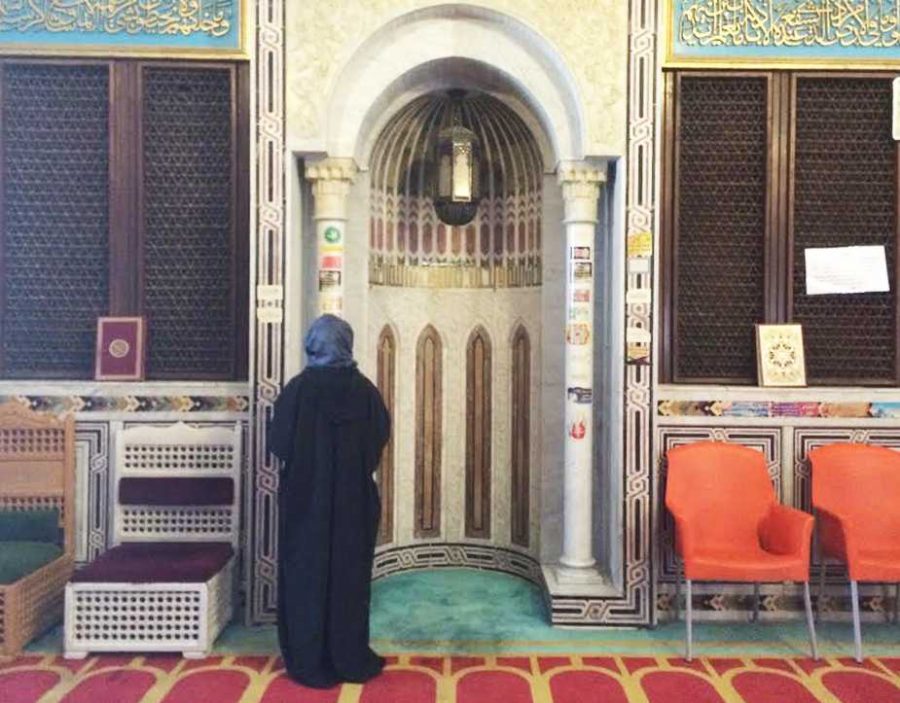Today is not just another Monday.
Today, I can’t wait to see pictures on Facebook, stories on Snapchat and to send WhatsApp messages to my friends celebrating the major Muslim holiday, Eid al-Adha, all around the world.
Eid al-Adha, known as the Greater Eid, literally translates to “festival of the sacrifice” and commemorates Ibrahim’s devotion to God by his willingness to sacrifice his son. Today, Muslims celebrate this historical offering by slaughtering an animal and sharing the meat among friends, family and the needy. The start of Eid is dependant on the lunar cycle and the Islamic calendar, but most countries follow the Saudi Arabian declaration for Eid holidays, marking Monday as the first full day of Eid al-Adha this year.
Last summer during my time studying in Jordan, I made Muslim friends that introduced and celebrated the “Lesser Eid,” Eid al-Fitr — which denotes the end of Ramadan — with me. It was an opportunity to learn about a religion and a culture far removed from the one I was brought up in. Seeing the celebrations halfway around the world makes me nostalgic for those times, and I find myself wishing there was a larger presence of Islamic celebrations at Pitt.
Unfortunately, the celebrations here will never compare to those abroad, and the lack of awareness of the religious holiday should not be commonplace in a school that touts diversity and inclusion. Pitt Arabic professor Rasha Al-Hashimi marks both holidays in her classroom, but said she doesn’t hear much about the second celebration elsewhere in the United States.
“I always felt like students and Americans in general do not know much about Eid al-Adha,” Al-Hashimi said. “Most people know about Eid al-Fitr, which comes at the end of the holy month of Ramadan, because it is well covered in the media.”
Countries in the Arab world vary on how many days they take off from work and school for Eid — ranging from three days in many countries and up to as many as 12 in Saudi Arabia, where the Hajj takes place. Islam is the second largest religion in the world, expected to surpass Christianity by 2017, according to the Pew Research Center. Despite America’s vast Muslim population of 3.3 million, nowhere in the United States, barring New York City, officially recognizes either Muslim holiday, Eid al-Fitr or Eid al-Adha, as a federal public holiday.
In Al-Hashimi’s Arabic department, Arabic and Islamic culture are tied into studies on language. But in most other departments and schools at Pitt, there is very little mention of the Muslim religious holidays other than a disclaimer in syllabuses noting that students can take off for religious holidays.
Finding a professor that takes non-Western religious holidays into account when planning exams and assignments is rare. Students who celebrate “less common” holidays have to ask to be an exception to most professors’ “no makeup” policy for taking tests.
“This is the reason why I feel strongly that I should take the day off, or at least, take the morning off to have time for Eid prayers and to get together with friends and family,” Al-Hashimi said. “This way, my students also have the opportunity to learn more about this occasion and to join in the celebration if they wish to do so.”
Eid also marks the time of the Hajj season when Muslims make the pilgrimage to Mecca — an essential part of Islam where every Muslim at least once in a lifetime, if he or she has the means must make the trip. Day of Arafat is the day before Eid, also known as the second day of the Hajj season. Customarily, Muslims who are not on pilgrimage will fast on this day until sunset when Eid al-Adha officially begins.
It’s an important day for more than 3 million Americans that hardly gets any recognition. With 3,168 international students at Pitt, we should acknowledge the swath of religions our students follow and respect the diversity that comes with different backgrounds.
In a country where anti-Islamic sentiment is growing rapidly, placing emphasis on and creating opportunities for understanding Islam should be paramount.
Don’t get me wrong, I love walking into a nationality room and seeing one of the festive Christmas trees in early December. But I would also love to see lights and lanterns representing Muslim holidays during their respective times as well.
There won’t be any decorations in your favorite academic buildings, but there are organizations around Pittsburgh who will be celebrating, such as an event hosted by the Islamic Center of Pittsburgh.
And for students who know little about Eid al-Adha, look more into it. Be aware of any and all religious holidays to facilitate a more inclusive atmosphere on campus.
Every holiday has an identity worth celebrating, and Eid is no exception.
Amber primarily writes about gender and politics for The Pitt News.
Write to her at [email protected].



